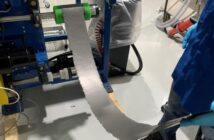
Electric buses may be the next big thing in transportation, but are we ready for them?
I’ve certainly had my fare share of commuter regret — you know, realizing that I ended up paying for gas rather than the convenience. Overcrowded, rude passengers, and unexpected weight times are deterrents to public transit. Electric buses might be your ticket to a better ride for more ways than one.
Old buses mean longer commute times, and more damage to the environment. Diesel emissions from traditional modes of transportation account for 6.5 million deaths a year caused by air pollution. That’s huge.
Switching to electrification would mean that buses would not emit pollutants or greenhouse gases. This would lead to better air quality.
Proterra Buses:
Currently, the “big dogs” of electric bus technology are competing against each other. But most of the buzz stems from Proterra – a company based out of California. The company has made big waves since it was founded back in 2008.
Till date, Proterra has sold 400 BEBs across the United States. What makes their design so unique is that it uses lightweight carbon fibre for its body rather than aluminum or steel.
Porter’s new 40-foot Catalyst E2 Max traveled over 1,000 miles on a single charge – a new world record for distance travelled by an electric vehicle.

Given it’s impressive battery life, Proterra might be increasing competition and developing new trends. Wrightspeed garbage trucks have introduced hybrid trucks, Toyota is currently testing hydrogen fuel cell trucks. Nikola and Bosch announced plans to team up on hydrogen duel long-haulers.
Electric bus sales might be growing, but it doesn’t necessarily mean that they will soar. On average, they cost $200,000 to $300,000 more than diesel buses. Pricy upfront fees might deter skeptics. Nonetheless, the environmental and user benefits are tremendous.
Manufacturers of Proterra’s electric buses claim that buyers will save up to $700,000 in fuel and maintenance over 12 years. Vehicle technology is a huge market and one that is reliant upon both public and private sector cooperation. Still, here at home, there are issues of feasibility, which hinder its popularity.
Issues with electric buses:
Delays caused by route changes for available charging stations might be too expensive for the transit agency, particularly if drivers have to account for the detour into their break times. The TTC and STM in Montreal have frequent layovers that are not as long as the times required or charging. This means that the cost of operating these buses would far exceed expectations.
Given that buses are large in mass compared to cars, their battery life is substantially lower (as little as thirty miles). Since most buses are typically on the road for twelve hours, charging stations must be frequent. It doesn’t help that charge times are longer than the time required for pumping gas. In fact, despite advancements in charging technology, charge times can be as much as five minutes after travelling 20 to 30 miles. If electric buses run behind schedule and require charging, their reliability is questionable.
Clean energy markets need federal funding if they are to propel into mainstream modes of transportation. Environmental initiatives often get lost in convoluted policies and lose public interest.
Electric buses around the world:
More cities around the world are putting in charging stations. Japan now has more electric charging stations than petrol ones. London has the largest number of electric buses in Europe.
There are more than 170,000 operating electric buses around the world, most of which are in China. Every year, one billion passengers benefit from electric bus technology. According to BAE Systems, this saves 15 million gallons of fuel, and eliminates 145,000 tonnes of carbon dioxide from entering the atmosphere. In this regard, one can say that electric buses might have their issues, but they definitely do have their advantages as well.



